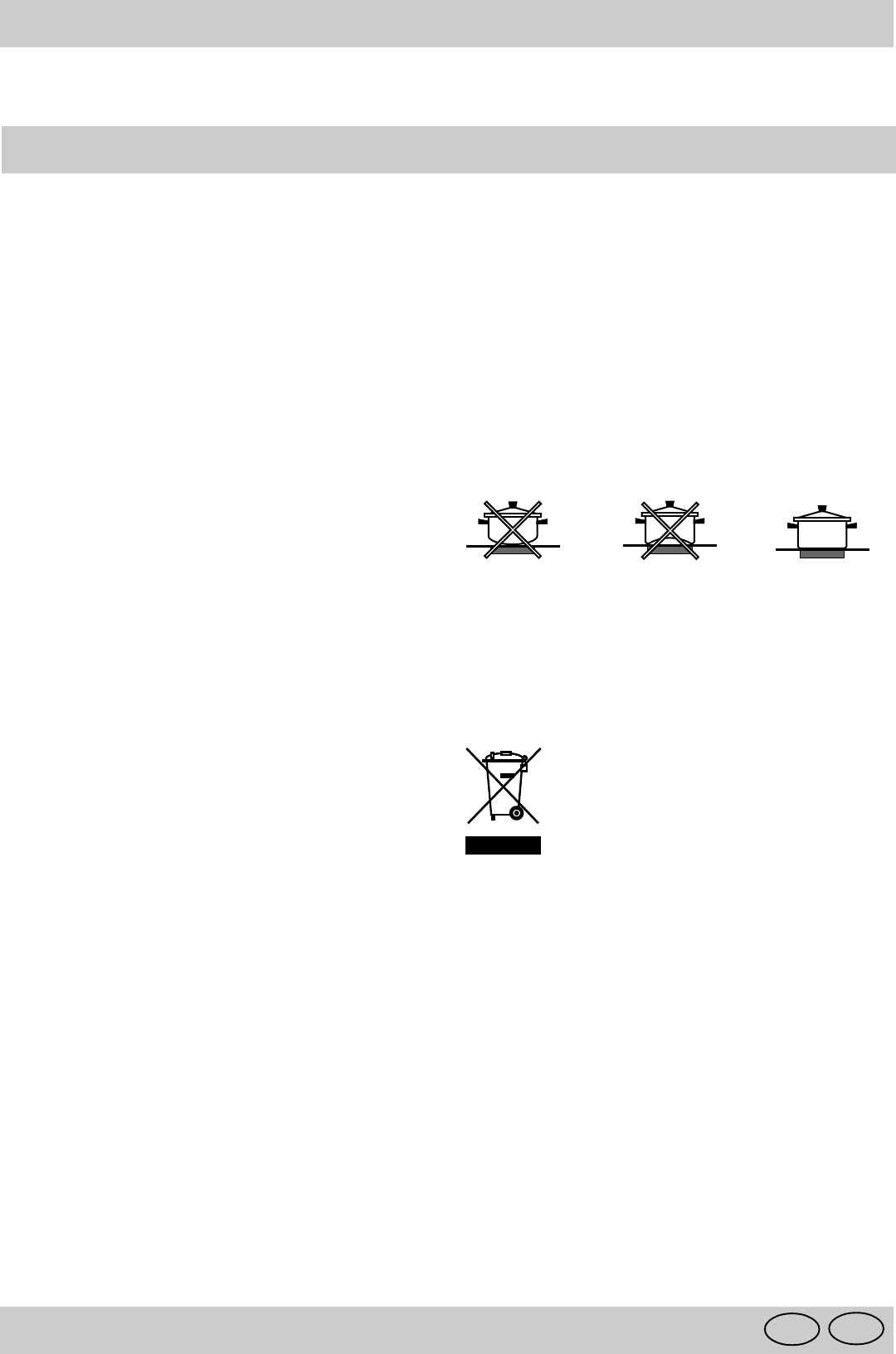
1
IE
GB
SAFETY PRECAUTIONS
Congratulations!
You have just purchased an INDESIT appliance that has been made using advanced technology and quality materials. As
time passes, you will appreciate its practicality and safety, which are constant features of our production.
1. This appliance has been designed for private, non-
professional use in normal dwellings.
2. Carefully read the recommendations in this
instruction booklet, as they give important advice
regarding safe installation, use and maintenance. Keep
this booklet in a safe place for further reference when
required.
3. After removing the packaging, check that the appliance
is intact. If in doubt, do not use the appliance and contact
professionally qualified personnel.
4. All installation and adjustment operations should be
carried out by qualified engineers in accordance with
current regulations. Specific directions are given in the
“installation instructions” paragraph.
5. Periodically check the condition of the gas connection
pipe and have it replaced by a qualified technician as
soon as it shows any signs of wear or anomaly.
6. Under no circumstances should the user replace the power
supply cable or the gas connection pipe of this appliance.
In the event of damage or the necessity for replacement,
only contact an authorised service centre.
7. Before connecting the appliance, make sure that the data
on the rating plate (situated on the bottom part of the
appliance and on the last page of the booklet) correspond
to those of the mains electricity and gas supplies.
8. Check that the capacity of the electrical system and the
power outlets are suitable for the maximum power of the
appliance, indicated on the rating plate. If in doubt, consult
a professionally qualified technician.
9. Some parts are covered with a removable scratch-proof
film. Before using the appliance the film should be
removed and the underlying part cleaned with a cloth and
a non-abrasive household cleaning product. When
switching on for the first time, it is advisable to heat the
empty oven at maximum temperature for about 30 minutes
to eliminate any residue from working.
10. During operation, the oven glass door and adjacent parts
of the appliance become hot. Make sure, therefore, that
children do not touch the appliance. For greater safety,
an additional child-safety device is available from our Head
Office and our Authorised Service Centres (see enclosed
list). When ordering this, please give the code: BAB -
followed by the appliance model. The model is stamped
on the plate which is visible on the back of the appliance
and in this manual.
11. Do not leave the appliance plugged in if it is not in use.
Switch off the main switch and gas supply when you are
not using the cooker.
12. The gas burners and pan supports remain heated for a
long time after use. Take care not to touch them.
13. To avoid accidental spillage do not use cookware with
uneven or deformed bottoms on the burner.
14. Never use flammable liquids such as alcohol or gasoline,
etc. near the appliance when it is in use.
15. To obtain the best results with the cooktop, several
fundamental rules should be followed while cooking or
preparing food.
• Use cookware with a flat bottom to make certain that
the pot sets properly on the cooking area.
16. If the cooker is placed on a pedestal, take the necessary
precautions to prevent the same from sliding off the
pedestal itself.
17.Do not use steam cleaners to clean your oven
THESE INSTRUCTIONS ARE ONLY VALID FOR THE COUNTRIES OF DESTINATION WHOSE SYMBOLS ARE SHOWN
IN THE BOOKLET AND ON THE APPLIANCE RATING PLATE.
Disposal of old electrical appliances
The European Directive 2002/96/EC on Waste Electrical and
Electronic Equipment (WEEE), requires that old household
electrical appliances must not be disposed of in the normal
unsorted municipal waste stream. Old appliances must be
collected separately in order to optimise the recovery and
recycling of the materials they contain and reduce the impact
on human health and the environment. The crossed out
“wheeled bin” symbol on the product reminds you of your
obligation, that when you dispose of the appliance it must be
separately collected.
Consumers may take their old appliance to public waste
collection areas, other communal collection areas, or if national
legislation allows return it to a retailer when purchasing a similar
new product.
All major household appliance manufacturers are active in
the creation of systems to manage the collection and disposal
of old appliances.


















